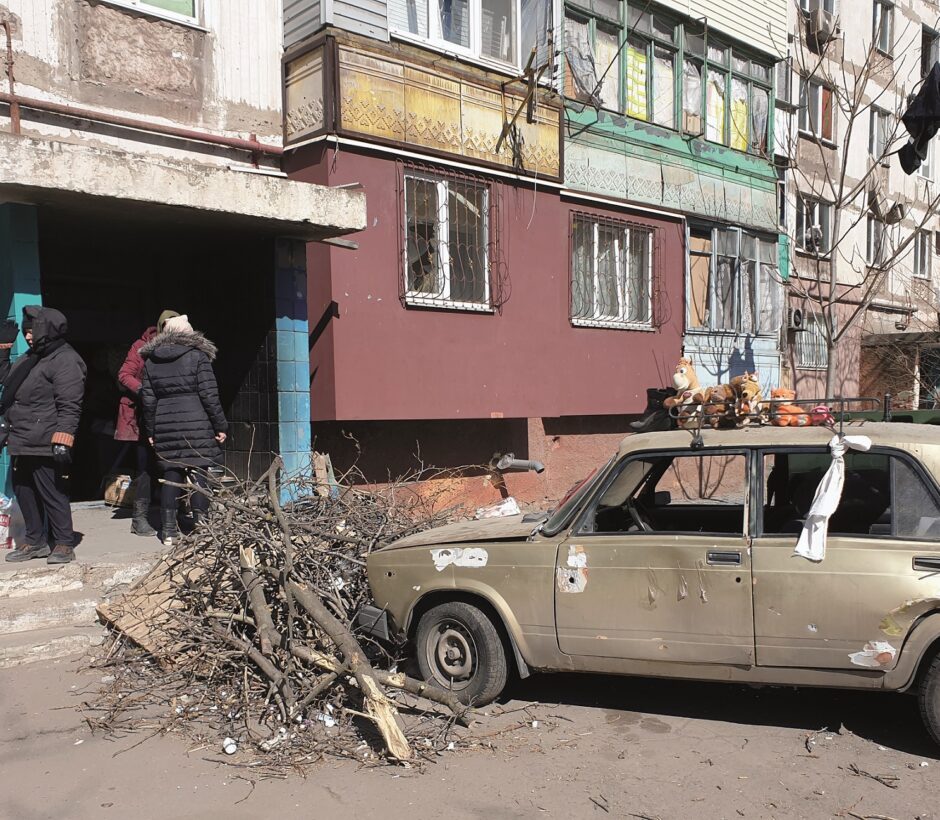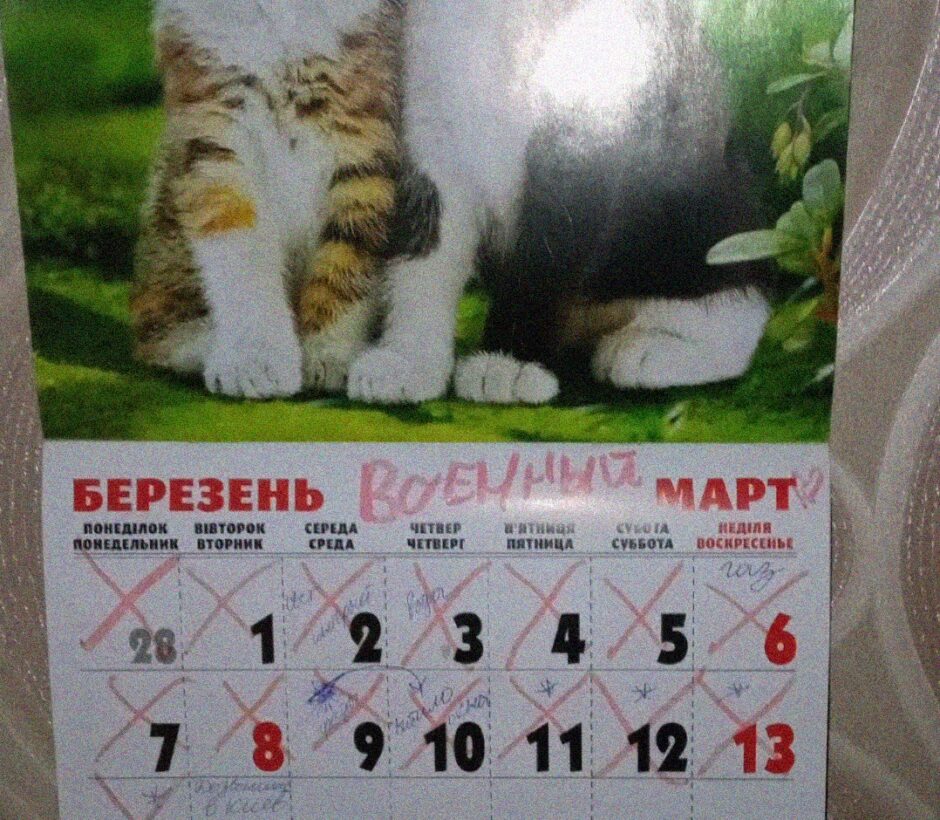Mariupol: To Survive

When the bombs fell close by, my husband and I laid down on top of our children and prayed that our apartment would not be hit. We decided that if we died, we would all die at the same time.
My daughter cried every time I left the apartment, but I had to leave. I needed to boil water and cook some food, and it was very cold in the apartment. Everything inside froze. (…) We taught our son what to do if we didn’t come back.
I gave the children food and water, but there was no bread. Even though they were fed, it was never enough. They always wanted more food. My daughter, who always ate poorly before the war, was now begging for more food.
Olga
Caption: Residents of the besieged city learn to live in the new realities. Everything must be in its place: both wood and toys. Photo: Viacheslav Tverdokhlib

We made the decision to go back to the apartment when two people in the cellar rapidly died. One was diabetic, the other I don’t remember, but people died because there was no medicine. But when we tried to get our daughter to leave the shelter, she had a huge tantrum because she didn’t want to go back to the apartment. She cried and said she wanted to stay. We had to pull her out by force to take her home.
She was afraid of every distant explosion that we heard, and immediately demanded to go back to the shelter. We had to tell her that the cellar was closed. My daughter didn’t want to live in her home. She would rather be in a cold cellar, where we sat on the floor on blankets all day in complete darkness, where there was no day or night.
Every new morning, we drew an X across the previous day in the calendar. It meant we had survived that day. My daughter called March the Month of War.
Olga

